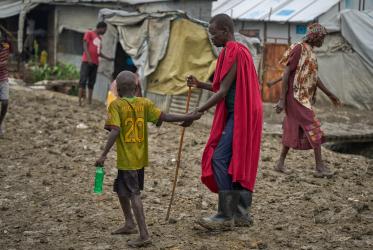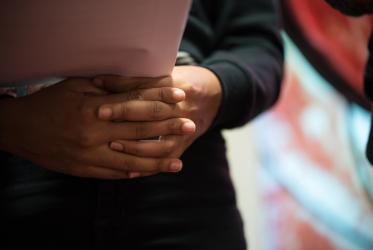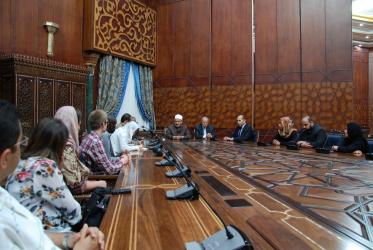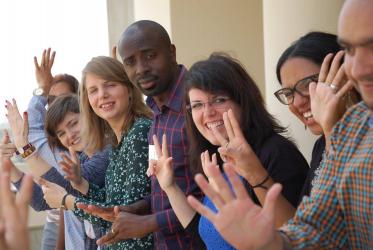Displaying 1 - 20 of 22
Workshop on HIV stigma, treatment adherence opens in Tanzania
29 September 2021
How will Africa go to the assembly?
25 June 2021
COVID-19 in conflict zones: “a crisis within another crisis”
27 November 2020
Rev. Damon Mkandawire: “A man is a gender justice champion”
03 October 2019
Moravian Church in Tanzania launches Thursdays in Black
10 September 2019
An advocate for family values, called by God
26 March 2018
Women in development create space for hope in Egypt
15 June 2017
Kenya: Voice of faith communities crucial in overcoming HIV
14 October 2016
WCC/UN conference calls for coordinated action on refugee crisis
20 January 2016
Churches have a special role to play in HIV response
18 November 2014















